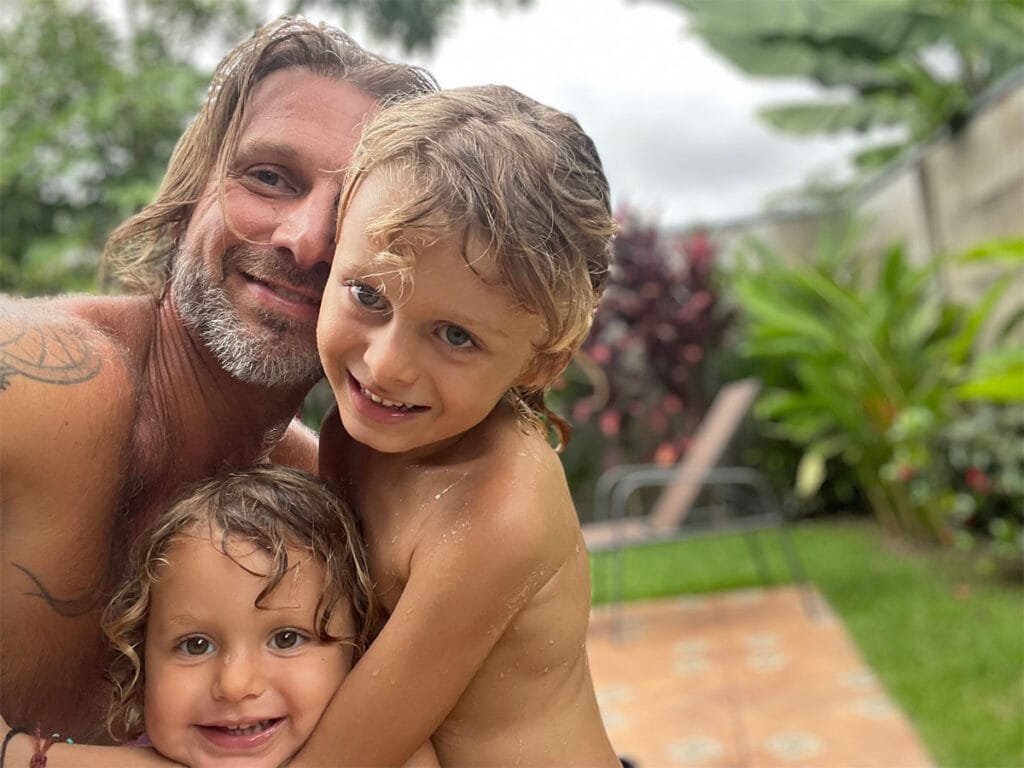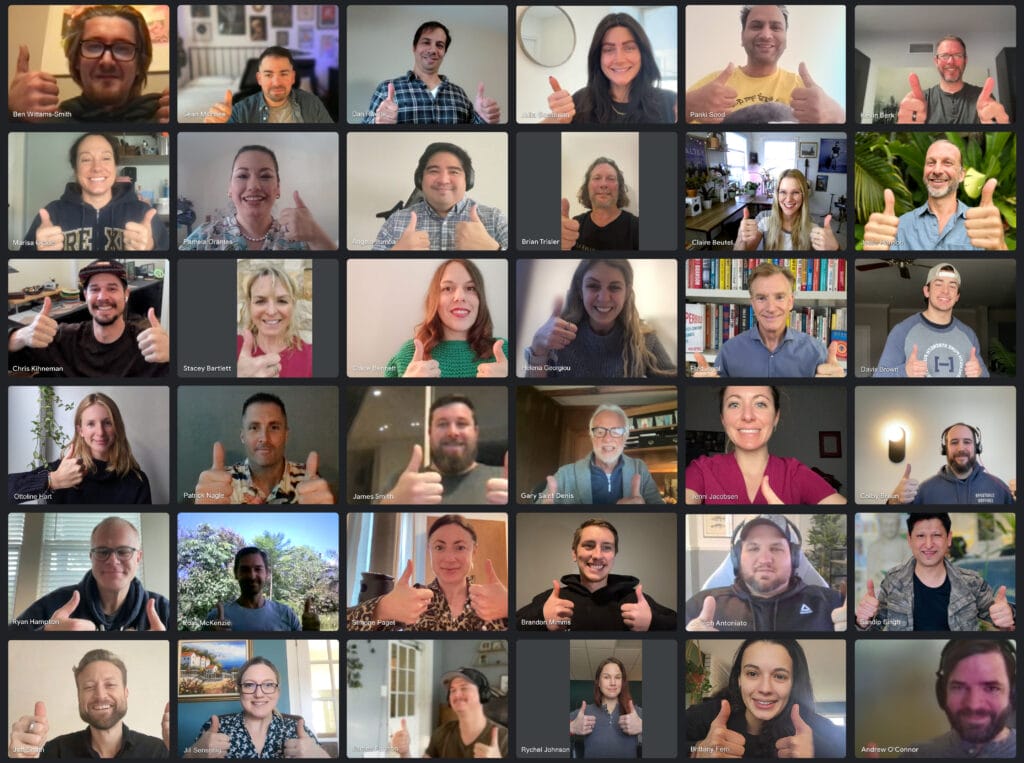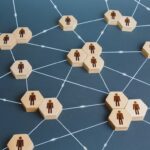If You Want to Find Enlightenment, You Need to Be Willing to Get Out of Your Mind
 Author:
Jesse Hanson, Ph.D.
Author:
Jesse Hanson, Ph.D.
 Editor:
Patrick Nagle
Editor:
Patrick Nagle

How a disembodied culture can heal itself yet!
We need a systemic shift in our consciousness around mental health. For too long, the ideas of disorders and diseases have permeated our minds, hearts, and our mental health systems. The modern mental health care model focuses on what is wrong, instead of what is right. It focuses on treating superficial symptoms, rather than facing the tough truths of root causes. It centers on fear, perpetuating disease and a sense of ‘smallness’ in the patient, rather than centering on love and recognizing the wholeness of who a person actually is. Furthermore, it focuses on treating symptoms in separation, rather than exploring the intricate interconnections and undeniable correlations between our mind and body.
The modern mental health care model is disempowering in its approach, language, and solutions.
We are experiencing a fascinating time. Never before have we had the technological advancements that we have now, while possessing a knowledge base and some connection to traditional healing practices. Time-honored traditions, rituals, and ceremonies that have been known to facilitate healing for generations, have been all but forgotten in the face of psychopharmacology, western medicine, and artificial intelligence.
There is a recurring theme shared by all of us living and experiencing these modern times of rapid change, and that common factor is disembodiment. This is to say that the more we give our attention away to devices, the more we become more like robots, and less like human beings. We lose touch with our bodies, we lose touch with nature, and we lose touch with human touch. We become disembodied.

When any one of us are in disembodied states of consciousness, we are more shell-like, numb, and far easier to control.
Just because modern science and technology allow for certain things to be possible, does not mean that we ought to “play god”. When I witness the confusions of embodied sexuality and our disconnected sexuality, relying heavily on pornography for pleasure, as well as our dependence on mind and body-altering substances, and the ways in which we all have succumbed to media and screen addiction as a ‘normal’ part of human existence, I feel sadness for a culture that’s lost its way. It disheartens me that so many people have given their power away to disembodied practices, destructive behaviors, and symptom-focused treatment approaches.
In our modern times, we are inundated with disembodied messaging and heavy reliance on technology for so many aspects of daily life. The unhealthy patterns associated with disembodiment end up accelerating ways of losing touch with our bodies, our humanness, and ultimately with our ability to feel connection with each other.
The more technology advances, the more authentic, soulful connections are jeopardized. The more we agree to make ‘normal’ a life of virtual dating, friending, playing, shopping, and running our lives through devices; the more distant we become from the simplicity of nature, the warmth of a hug, and the essence of our humanity, embodied in our physical form.
This is what I see when I offer my zoomed-out view of our society.
As a somatic psychologist, I have spent countless hours exploring and talking to people about their journey – not just from the perspective of their mind and ego, but also how they experienced it in their body. What I have observed, time and time again, is that the more a person comes home to their body, the more they can create a high quality life. This approach surpasses age, gender, race, and socioeconomic class.
Even in my own life, the more I have learned to process my traumas, clear my body, as well as my mind, and cultivate compassion; the more I am able to create great days, even when major challenges arise. Especially now as a father of two sweet little kids who challenge me to grow in ways no one else can.
Witnessing how my children live in their bodies, innately trust themselves, and express themselves freely is inspiring. My two children, Beckett and Jasmine, validate what I have been studying the last 20 years in developmental psychology, neuroscience, and spirituality. Children are powerful teachers, mirrors of our inherent nature, with one of their finest being embodiment and living in the present moment.

Our inherent nature entails living in harmony with our bodies, nature, and each other, encouraging emotional expression, and connection.
While there are many roads to disembodiment, thankfully, there are also many roads to embodiment, and our natural state. Somatic psychology, mindfulness practices, and holistic methods are some of the most effective paths I have experienced. Equally important, I have witnessed countless others benefit from the same practices on their journey to remembering how to live in their body in a healthy way; a way in which emotions are allowed to be felt, expressed, and processed.
I now experience my body as being deeply interconnected to my mind and consciousness. My body is not a machine, but rather, an integral part of who I am.
In many traditional cultures, the notion of “ceremony” was the way in which society ‘cleansed’ itself, both at levels of mind and body. By each person working to let go of negative emotions and pain, that person would not only feel better, but their community would also feel better.
It is important to recognize that the essence of a ceremony often lies in the inclusion of embodiment practices. For instance, one may endure prolonged fasting, partake in dance and physical movements, or even consume entheogens for healing and clarity. Numerous practices have been preserved throughout our ancestral lineages, all sharing the common thread of embodiment for both healing and the discovery of our genuine, expressive selves.
Fortunately, neuroscience has finally caught up with traditional wisdom, confirming that an adaptable nervous system capable of processing emotions is a much healthier model compared to the approach of emotional suppression, numbing, and disembodiment, promoted over the past century.
We live in a world where technocrats seek to oversee, police and collect data from nearly every thought and unfolding event worldwide. After years of harboring anger toward technology for technological advancement leading to greater disconnection, I’ve realized that technology itself is not inherently malevolent. Rather its impact on people and society hinges on how it’s wielded.
Ironically, as much as I have focused on the darker aspects of our technologically addicted culture, I also recognize the potential for technology to contribute to humanity’s improvement when used with the right considerations and genuine care. I also discern how technology can serve humanity’s betterment. This realization led to my co-founding of MentalHealth.com, where I proudly serve as Co-Founder and Clinical Director.

As a people-first health technology company, we provide reliable resources, accessible services, and nurturing communities that empower people in their pursuit of well-being.
We achieve this by repurposing the very tools responsible for disembodiment and dependency into a force for promoting embodiment and building healthy communities.
I am honored to be a co-founder of MentalHealth.com. The opportunity to be part of a compassionate team, committed to guiding people towards self-understanding and connection, is aligned with both my professional and personal paths.
In my role as clinical director, I have the opportunity to unite leading authority experts in mental health and medical professionals in support of a more robust and comprehensive mental health system. Additionally, I value how our team grounds itself in the best of the existing mental health structures, while also being open to the advancing fields of neuroscience, trauma reprocessing, and even the holistic incorporation of traditional healing practices and wisdom.
We stand on the precipice of great change in our understanding, implementation, and restoration of mental health worldwide. Together, as we educate, support, and empower people in their pursuit of well-being, we contribute to shaping a healthier future. A future where our children enjoy a higher quality of life, deeper connections with themselves and one another, and ultimately, a society willing to get out of its mind and experience a taste of enlightenment.
Onwards & Upwards!
– Dr. J
We are a health technology company that guides people toward self-understanding and connection. The platform provides reliable resources, accessible services, and nurturing communities. Its purpose is to educate, support, and empower people in their pursuit of well-being.
Jesse Hanson, Ph.D., is a somatic psychologist with more than 20 years of experience in clinical psychology and neuropsychology.
Latest

Categories
- Opinion (137)

